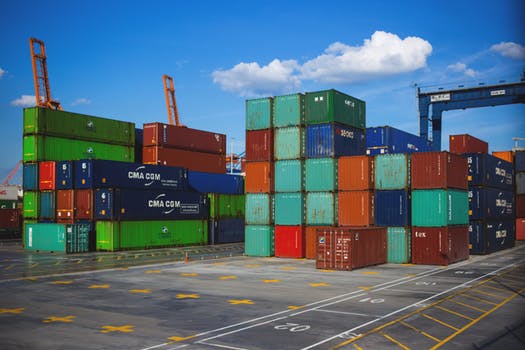There has been a strong public outcry with respect to the requirement of furnishing bonds/letter of undertaking (LUT) for export of services. During pre-GST regime, export of services was exempt from Payment of GST on Export of Services or submission of any Bond or Letter of Undertaking before or after export of services, which meant export of services were permitted without payment of any duty.
A benefit of input service tax refund was also available. But with the introduction of Rule 96A in Central Goods and Services Tax Rules, 2017, Tax Treatment of Export under GST Regime is not as same as it was earlier. GST Regime and has created additional documentation and procedural requirements, which has raised few questions in the mind of Taxpayers, which implies that Payment of GST on Export of Services is not directly exempted. IGST is levied on the supply of any goods and services in the course of inter-state trade or commerce.
As per the IGST Act, export and import of goods and services are deemed to be a supply in the course of inter-state trade or commerce. Exports have been defined under “zero rated supply” meaning that tax rate on the export of goods and services will be zero. While one section is categorizing exports rate at zero, another section 3(5) states that transaction of export will be subjected to IGST, which is even zero rated supplies of services are subject to IGST. Now, the export invoice has to mention either “Supply meant for Export on Payment of IGST” or “Supply meant for Export under bond without payment of IGST” meaning thereby that export cannot be done without following any of the two ways of raising an export invoice.
Read more about this in our article: Payment of GST on Export of Services – Letter of undertaking or Bond
Just to create a basic understanding, exports of both goods and services can be conducted by only two ways possible to export under GST which are as follows:
- Export of goods/services by charging GST
- Export of Goods/services without charging GST
When an exporter chooses the second alternative, he needs to furnish either an LUT or a bond (details can be found in the above article).
Why the Government needs to revisit these provisions – A “Not so Digital” India yet!
1.As a direct consequence of the above rules, the exporters of services are now facing huge operational setbacks. Even small scale service providers like bloggers, freelancers, etc are impacted adversely. Previously, exporters of services did not have to file any document as such. They were only liable to comply with the FEMA provisions majorly with respect to foreign income. However, as discussed earlier, now, every such small business owner will have to comply with these provisions.
2.The main hurdle that presents itself in the weak infrastructural and absence of a platform. The forms have not been notified online. The Department has recently issued clarifications that till the time the forms are notified online, the exporters are required to submit the forms manually.
3.The entire problem starts from the mere fact that the exporters are struggling with formats, procedures and operational loopholes. The system in jurisdictional offices is not equipped to handle this yet. There is a lack of clarity among the officers and the executive staff about the forms or any information about filling the forms. Consequently, faulty documents are being filed, if filed at all.
4.There is still considerable confusion the definition of “Exports” in certain specific concepts. For example, in the case of bloggers. Receipt of foreign exchange is one of the main conditions that are to be considered while determining “exports”. So what will happen in the case of bloggers or freelancers who receive payments from gateways, like PayPal? By the standard process, PayPal converts the foreign exchange Indian Rupees once it receives the money. So if the freelancer receives the money post conversion in Indian currency directly, will it still be considered exports? A lot of interpretations and tests would come to play here. So, if PayPal converts the money outside India, in that case, services can’t be treated as exports since no foreign currency was received in India. The thing is there is no sure shot to know where the conversion took place. Customers do have an option to request PayPal to issued Foreign Inward Remittance Certificate (FIRC). However, how many people even know of FIRC?
5. Another very pertinent scope for improvement would be the lack awareness. Undoubtedly, GST covers a huge ambit and it is hardly possible for any layman to be aware of every nitty gritty of the law. They have been crippled with the dependency on professionals whereas even professionals need a minimum reasonable time to update themselves with the practical implementation of these provisions and their operational aspects. By the time a safe conclusion is reached, the deadline comes knocking down.
6.“Exporters are reluctant to export as getting a certificate from the GST authorities only adds to the transaction time and cost,” said FIEO in a representation to the finance ministry. The exporters have also been advised to do their own calculation, even while claiming a higher drawback as they have to forego IGST refund/ITC refund/carry forward of CENVAT credit. Also, there is still no clarity on whether IGST on exports should be paid in FOB or cost and freight.
In all, it can be said that a grand feast is being served under an open roof on a rainy day. With a platform and framework which is still so raw, pressurizing exporters hardly seem to be a prudent move. It is highly recommended that the Govt revisits the provisions and devise practically feasible ways to implement the same. Until the said objective is fulfilled, we can only sincerely hope that the exporters are allowed more time to cope with this new requirement and get themselves familiarized.
 customersuccess@taxmantra.com
customersuccess@taxmantra.com Toll Free:
Toll Free:  Contact Us
Contact Us


